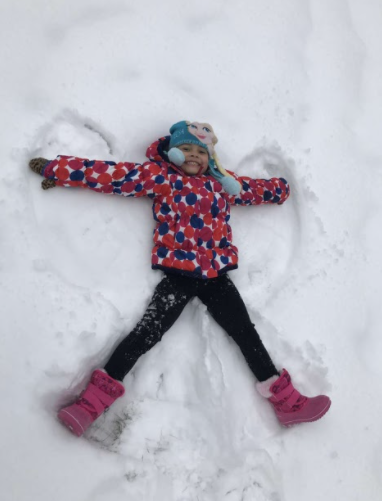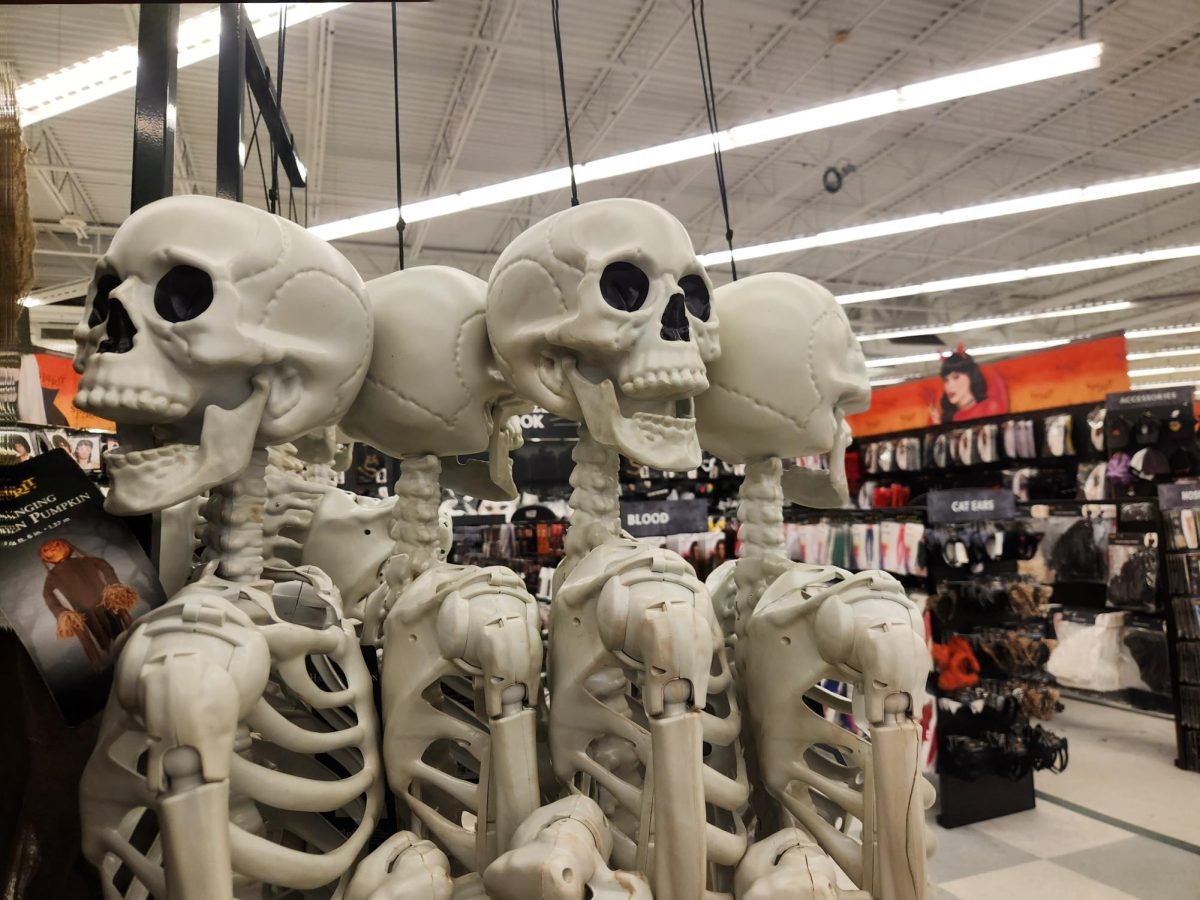Battling Winter Blues

Making the Most of the Snow: Isabella Torres making snow angels. Photo courtesy: Bianca Torres. December 2016.
January 27, 2021
The first snow can be exciting for many, but not everyone sees the beauty and the fun of the winter season. People can develop a strong feeling of depression whenever the season and climate change, and it is typically caused by less daylight, which is why people are more likely to develop this disorder in fall and winter.
Senior Emma Sirico may not experience any depressive feelings, but she realizes that she becomes less motivated when the winter season comes around. She says, “The winter does make me less productive when it comes to working out because I can’t go outside.”
To get over this feeling, an advice to understand and follow is that the winter season may take away a lot of light hours in people’s day, and it may keep people inside of their houses, but it doesn’t mean they still can’t enjoy themselves in the warmth of their homes.
“Just because you aren’t going out as much, doesn’t mean you can’t plan activities and have fun,” says ULifeline, an online resource center.
The cold can also be a nice chance to escape the heat for a bit. Jennifer Bier, one of the guidance counselors at Foran, recommends searching for a form of exercise, or a hobby or passion that does not require stepping outside in the cold but keeps one motivated and happy. Bier says, “This can be knitting, crafting, reading, dancing, writing or playing music.”
Mr. Jeffery Raucci, one of the health teachers at Foran, shares with us some of his thoughts about a seasonal mood disorder that is associated with winter blues. This mood disorder is called Seasonal Affective Disorder, otherwise known as SAD.
According to American Family Physician, an evidence-based clinical journal, younger people are more likely to develop SAD. “About 4 to 6 percent of people may have winter depression. Another 10 to 14 percent may have mild SAD.”
Raucci also provides some suggestions on what a person may do as they fight this mood disorder. He says, “Exercise and movement can help with the release of chemicals such as dopamine, serotonin, norepinephrine, endorphins, etc.”
Junior Bianca Torres has a neutral opinion on her preference for cold and hot weather. As a dancer, she prefers the summer weather, since dancing makes her used to the heat, but Torres still looks forward to the different activities she can enjoy solely in the winter.
Torres says, “I don’t really sled or build snowmen anymore, but I can drink warm drinks and play in the snow with my dog.”
Furthermore, although there are many winter activities that can be done by oneself, it is also important to connect with others and socialize. Whether that be family or friends, interacting with other people can help with one’s mental and emotional health. Raucci shares, “Communication and socializing is an effective way at reducing stress and anxiety in one’s life!”








